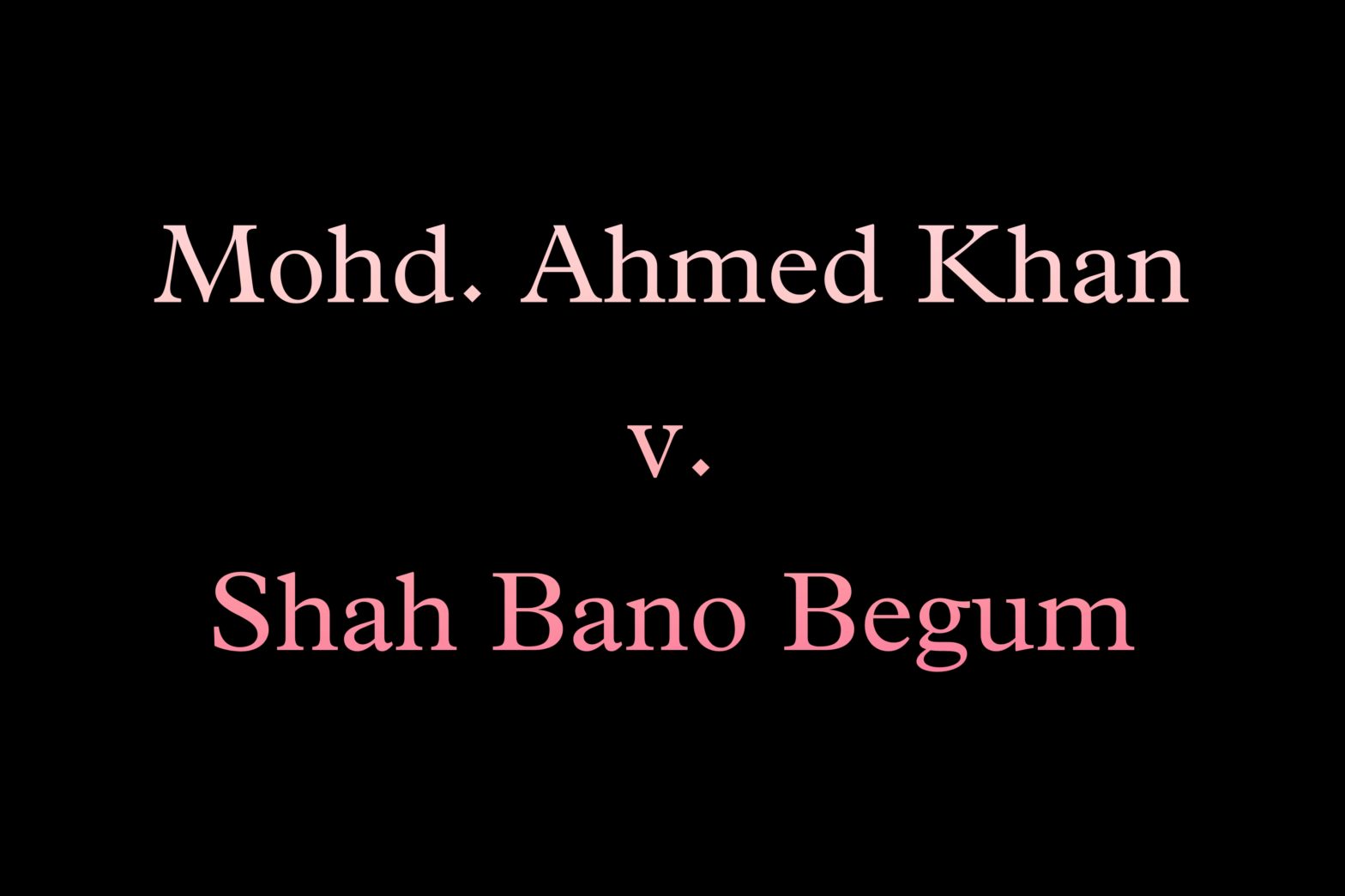Citation: Air1985 SC 945
Date Of Judgment: 23 April 1985
Parties Involved:
Petitioner- Mohd. Ahmed Khan; Respondent- Shah Bano Begum
Facts
Mohd Ahmed Khan (the appealing party) who was a lawyer by profession, married to Shah Bano Begum (the respondent) in 1932, had three sons and two daughters from this marriage. In 1975, when Shah Bano’s age was 62 years, she was disowned by her spouse and was tossed out from her marital home together with her children. In 1978, she filed an appeal in the presence of the Judicial Magistrate of Indore, because she was abandoned from the maintenance of Rs. 200 per month, which was guaranteed to be provided by him. She demanded Rs. 500 per month as maintenance. Subsequently, the husband gave her irrevocable triple talaq on November 6th, 1978, and used it as a defense to not pay maintenance.
The magistrate, in August 1979, directed the husband to pay an entirety of Rs 25 per month as maintenance. Shah Bano in July 1908 made a plea to the High Court of M.P, to change the sum of maintenance to Rs. 179 each month, and the high court increased the maintenance to the said amount i.e. Rs. 179 per month. The same was challenged by the spouse within the Supreme Court as a special leave petition to the High court’s decision.
Issue
- Whether section 125 of the Code of Criminal Procedure (CrPC), is concerned with Muslims or not?
- Whether a uniform civil code applies to all religions or not?
- Whether the amount of “MEHR” given by the husband on divorce in Islamic law is adequate to get the husband rid or is liable to maintain his wife or not?
Holding

After the appeal of the respondent, the matter was then heard by a five-judge bench. The five-judge bench was composed of Chief Justice CHANDRACHUD, RANGNATH MISHRA, D.A. DESAI, O.CHINNAPPA REDDY, and E.S. VENKATARAMIAH. On 23 April 1985,
The Supreme Court in a unanimous and like-minded decision dismissed the appeal and confirmed the judgment of the High Court.
The Supreme Court concluded that “there is no conflict between the provisions of section 125 and those of the Muslim Personal Law on the question of the Muslim husband’s obligation to provide maintenance for a divorced wife who is unable to maintain herself”. After referring to the Quran, holding it to the greatest authority on the subject, it held that there is no doubt that the Quran imposes an obligation on the Muslim husband to make provision for or to provide maintenance to his divorced wife. The Supreme Court invoked section 125 of the Code of Criminal Procedure, which applies to everyone regardless of caste, creed, or religion. It ruled that Shah Bano be given maintenance money, similar to alimony. The Supreme Court in case duly held that since the responsibility of Muslim husbands towards their divorced wives is limited to the extent of the “IDDAT” period, even though this situation does not contemplate the rule of law that is mentioned in section 125 of Crpc.,1973.
Thus in the end, after a very long procedure, the court finally concluded that the husband’s legal liability will come to an end if a divorced wife is competent to maintain herself. But this situation will be reversed in the case when a wife is not able to finance or maintain herself after the “iddat” period, she will be entitled to receive maintenance or alimony under section 125 of CrPC.
Comment
Though the court took a long time, the decision of rejecting the appeal is very historic because it keeps up the truth and faith of the individuals in the judiciary. This judgment has marked the significance of maintenance which ought to be given to the divorced Muslim women who are not in the condition to earn and maintain themselves. The Shah Bano judgment pulled in a lot of opposition with authoritative bodies being against the decision for the reason of it being against the provisions of Islamic law, but SC passed the impartial judgment and at last, it had maintained the trust and faith of citizens in the judiciary. This lead to the enactment of the Muslim Women (Protection of Rights on Divorce) Act, 1986 which given Muslim women receiving a huge, one-time payment from their husbands amid the period of Iddat, instead of a maximum month to month payment of ₹500 – an upper limit which has since been expelled.
